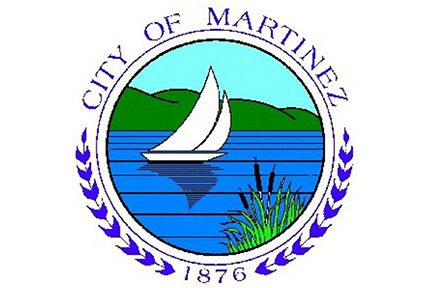The way elections are conducted in the City of Martinez and the School District could soon be changing from at-large to district elections.
Recently, both the City of Martinez and the Martinez Unified School District were served with correspondence by Shenkman & Hughes Law Firm who represents Martinez community members organized as Reform Martinez – District Elections Now.
According to legal requirements, the City and School District must respond to the request by December 7, 2017.
The correspondence requests that each local government agency develop a by‐district voting system, which proponents believe would better serve the community’s geographic and ethnic
diversity. A by‐district election system would incentivize elected officials to better represent the needs and interests of their district’s constituents, encourage more deliberate and constructive political discourse, and minimize the influence of special interests.
Reform Martinez – District Elections Now cites a lack of geographic and ethnic diversity on recent elected bodies. While the Martinez community is becoming more diverse, with 35% of its residents being non‐white and Latinos making up nearly 20% of the population.
Advocates also point out that 4 out of 5 of the current City Councilmembers live within 600 feet of each other in the downtown corridor, leaving the balance of the Citizens of Martinez with little representation. California Elections Code states that, in creating districts, a council may consider “(a) topography, (b) geography, (c) cohesiveness, contiguity, integrity, and compactness of a territory, and (d) community interests of the districts.” The group proposing the change states that the current concentration of four council members living in a single neighborhood fails to stand up to 3 of the 4 criteria.
The lack of geographic diversity has left many communities outside the downtown corridor feeling underrepresented in terms of economic development and public safety. Although the
downtown corridor represents 5% of the City’s revenue, the area receives most of the Council’s attention. In addition, current leadership has failed to advocate for the reopening of Fire Station 12, leaving many Martinez residents concerned for their community safety.
In addition to proposing a 5‐district plan for the City of Martinez, proponents are calling for a rotating Mayor system, where the Mayor would be selected by the city council (a system that was in place up until the late 1970’s). Proponents point out that the current at‐large system has resulted in only two Mayors in the last 37 years, leaving many residents clamoring for new Mayoral leadership.
At the June 15, 2016 City Council meeting, a rotating Mayor system was supported by Councilmember Lara Delaney, “It strikes me that some of the comments that have been made about putting term limits (on commissioners) could well apply to some of the Councilmembers and perhaps the Mayor as well. I think it speaks for the need for a rotational Mayor to be considered in the City of Martinez.” The context of the conversation was about long‐serving public servants, one of those is Delaney herself.
The current system is skewed towards incumbent candidates, leaving little room for new candidates and fresh ideas. In the last two decades, 80% of the Martinez City Councilmembers served beyond 2‐3 terms. In the last two election cycles, new councilmembers were elected only when incumbents did not seek reelection. Former Councilmember Michael Menesini served 28 years, up until 2014. Mayor Rob Schroeder and councilmember Mark Ross have both been serving nearly 22 years ‐‐ since 1996.
At the school board level, the community has also experienced inequity and disparate representation, which resulted in a school board member recently resigning due to her inflammatory, inappropriate and discriminatory comments.
Should either the council or the board choose not to agree to move forward with a district plan, the law allows the complainant to take judiciary action. So far, no city or school board has successfully fought off redistricting in court. If the matter proceeds to litigation and the institutions do not prevail they would be liable for their legal fees and those of the complainant.
Legal representation for the complainant is on a contingency basis, which would not place a burden on the group and thus not prevent them from moving ahead with legal action should
the city and board not comply. Reform Martinez – District Elections Now asks the Citizens of
Martinez to contact their City Councilmembers and School Board members and make their
voice heard about fair and equal representation in Martinez with District Elections, including
rotating Mayor.
Editors Note:
In speaking with a representative from Reform Martinez – District Elections Now, they say the City of Antioch, City of Brentwood and recent action by the East Contra Costa Fire Protection District may put all three entities in violation of the California Voting Rights Act. It’s unclear if they would each receive letters.
Shenkman & Hughes Law Firm have written letters to multiple California cities which include:
- Carlsbad
- Encinitas
- Escondido
- Menlo Park
- Mission Viejo
- Modesto – spent $3 million fighting and lost
- Oceanside
- Palmdale – who spent $4.6 million fighting and lost.
- Poway
- San Rafael
- Santa Rosa
- Vista


1 comment
Antioch currently has council members who would go this way in a second.
Comments are closed.